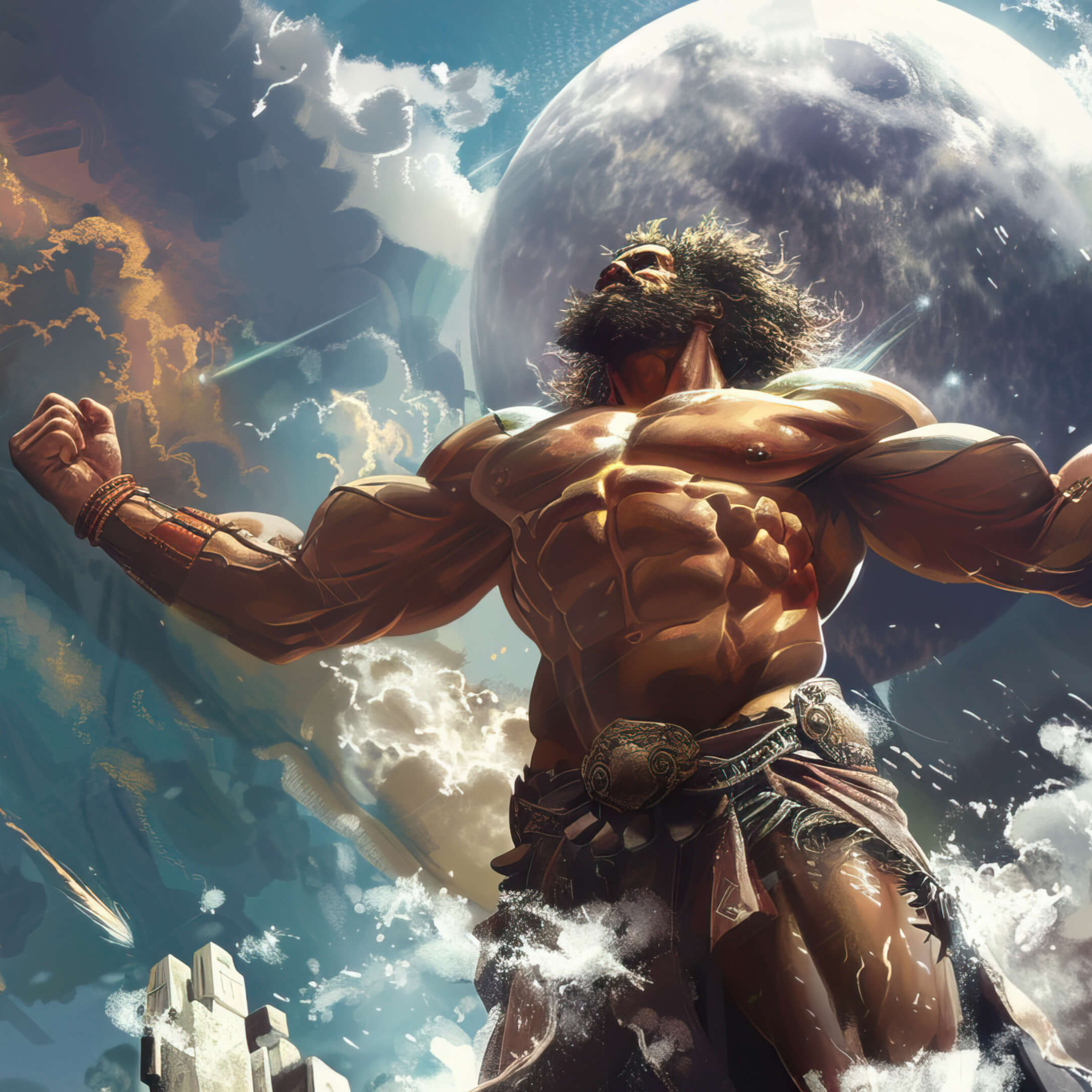
There Is No Spoon
Why are we so drawn to mythological stories in movies and books? Can we find meaning in myths — and is it even there? Where should we look for the meaning of life, the universe, and everything in between? Why are ancient stories still so relevant to modern life? And how do we navigate life's crises and come out transformed?
In this podcast, we explore these big questions and more at the crossroads of psychology, philosophy, cultural studies, and science. Join us as we dive deep into timeless stories and timeless truths to uncover insights for today's world.
Listen on
Episodes

20. Good, evil, and everyday heroism
We continue exploring Jordan Peterson’s second rule for life. The second rule is closely connected with the well-known moral law expressed in Kant’s categorical imperative or in the Christian commandment to treat others as you would like to be treated yourself.An often-overlooked consequence of this idea, which Peterson emphasizes, is its reciprocity. In other words, by accepting this principle for yourself, you should also allow for its application to others. This, in fact, leads to the principle: “Make friends with people who want the best for you.”It’s unlikely that this sounds entirely new, but the more holistic “view from above,” which is precisely what makes Peterson’s book valuable, allows us to understand these seemingly self-evident truths on a deeper level.

19. Order and chaos: why do you need them both?
Continuing our discussion of Jordan Peterson’s 12 Rules for Life. The second rule is: “Treat yourself like someone you are responsible for helping.” However, in my view, this rule is not really about that. The key concepts in this section are order, chaos, and the process that unfolds between them. Despite their abstract nature, these forces are present in our lives and are just as significant as more concrete, material things. A lack or excess of either one leads to undesirable consequences, which is why the search for the middle path becomes one of life’s most important tasks.Do you agree that finding a balance between order and chaos is one of the important tasks in life? Share in the comments!

18. Atlas shrugged, or Why we sometimes need to be "dangerous”
“Stand up straight with your shoulders back.” — that’s how the first of Jordan Peterson’s 12 Rules for Life sounds, which we’re discussing this season. While the idea of the connection between physical and psychological states is generally reasonable and relevant, I believe this rule carries much deeper meaning.In this episode, we’ll discuss Peterson’s key concept of the dominance hierarchy and how it shows up in everyday life on different levels.“If a dominant lobster is badly defeated, its brain basically dissolves. Then it grows a new, subordinate’s brain—one more appropriate to its new, lowly position.” (Jordan Peterson, 12 Rules for Life)You can listen as always on Apple Podcasts, YouTube, Google Podcasts, or Spotify.

17. Does life have rules?
The new season of the podcast is dedicated to exploring Jordan Peterson’s Twelve Rules for Life.A few years ago, while studying mythology, I stumbled upon a series of YouTube lectures by an author I didn’t know at the time. The topic was the psychological interpretation of biblical stories.What struck me most was how these seemingly dry, hours-long videos were being watched by millions of people worldwide.In this episode, we talk about why Twelve Rules for Life is worth reading, even if titles like “how to live properly” make you roll your eyes.And what does Jung, cognitive psychology, and ancient myth have to do with all this? Let’s find out.If you’ve read Peterson before and want to go deeper into his ideas, join the conversation. If you’re new to him but curious about meaning, order, and the inner structure of life, you’ll definitely find something here.And if you believe life can’t be squeezed into a set of rules, tune in and join the discussion!

16. What is destiny?
In this episode, we explore one of the most mysterious and debated topics — the topic of destiny. Reflected in mythology, cultural studies, and psychology, destiny has always raised many questions. We analyze it through the lens of time, starting with ancient gods of fate such as the Greek Moirai and the Norse Norns (and not only them), and ending with modern psychological perspectives.What is the difference between minor destiny and major destiny? What is the purpose? How does personal choice influence destiny? We discuss these questions in this special bonus episode.Works mentioned in this episode:Carl Jung – Memories, Dreams, Reflections; The Archetypes and the Collective UnconsciousMarie-Louise von Franz – On Dreams and DeathJürgen Habermas – theories on narrative identityAleister Crowley – concept of the Holy Guardian Angel (Thelema)The Poetic Edda – Norse mythological poems (on the Norns)

15. Synchronicity for the rational mind
In this bonus episode, we revisit the phenomenon of synchronicity — a concept Jung used to describe events that are meaningfully connected, yet not causally related. Often labeled as mystical or esoteric, synchronicity takes on a different light when viewed through the lens of narrative psychology. Building on our previous discussions about personal life stories, we explore how this seemingly irrational idea can, in fact, be understood in a rational and psychologically grounded way."There are no accidents." — Master Oogway, Kung Fu PandaMentioned resources:Carl Gustav Jung, Synchronicity: An Acausal Connecting Principle (CW, v.8)The Emerald Tablet (Tabula Smaragdina)

14. Alchemy of midlife passage: death, rebirth, and a new myth
In this episode, we return to the themes we’ve been exploring throughout the previous thirteen conversations — the midlife passage and what it asks of us. We revisit key ideas from earlier episodes and take a step further by using the symbolic language of alchemy to understand what is happening within us during this profound life transition. As Jung suggested, alchemy offers a powerful metaphor for inner transformation — one that helps illuminate the psychological processes at work when our old identity begins to dissolve and something new, yet unknown, starts to emerge.Sources of quotes in this episode:Carl Jung, Letters, Vol. 1, p. 483Carl Jung, Collected Works (CW 17, §308)James Hollis, The Middle Passage: From Misery to Meaning in MidlifeZen Flesh, Zen Bones: A Collection of Zen and Pre-Zen Writings

13. Man’s search for meaning
If you've lost the meaning in life, should you be upset and rush to find it again?A traditional psychological issue for a person standing at the midpoint of life’s journey is a crisis of meaning. The goals and purposes that once worked no longer do, and new ones have yet to emerge. But is that the root of the problem?In this episode, we’ll explore a different perspective — one in which meaninglessness is seen as a symptom — and see what kind of conclusions we arrive at in the end.Authors and thinkers mentioned in this episode:Carl Gustav Jung,Viktor Frankl,Jordan Peterson,Søren Kierkegaard,Paul Tillich,James Hollis.

12. From fear of loneliness to helpful solitude, or Why we need to learn to be alone
We often fear loneliness, desperately trying to avoid it like the plague. But here's the twist: loneliness isn’t just something to run from — it’s a key player in our journey toward self-understanding.In this episode of the podcast, we’ll discuss why solitude is essential for navigating the middle of life, how it helps shift our focus from the Ego–World axis to the Ego–Self axis, and, of course, the inevitable hurdles that come with it. Drawing on the wisdom of James Hollis and Irvin Yalom, we also take a slight detour into Star Wars territory.Tune in to find out how solitude can be your best ally in this whole self-discovery thing.

11. Death and other problems in the second half of life
Have you ever thought about how the way you think about death might affect the way you live? Many depth psychologists believe that the task of the second half of life is to prepare for death — from Eros to Thanatos. In my view, this is one of the most important yet most taboo topics in modern society.How fundamental is the fear of death? Why is immortality problematic, and how is this reflected in the myth of Eos and Tithonus? Why is the awareness and acceptance of one’s mortality the most crucial task of the midlife transition? We explore these questions in the new episode."Life is a short episode between two great mysteries, which in reality are one and the same."— Carl Jung, Letters, vol. 1, p. 483.Sources mentioned:Leo Tolstoy, The Death of Ivan IlyichPhilippe Ariès, Western Attitudes Toward DeathJames Hollis, The Middle PassageIrvin Yalom, Existential PsychotherapyGreek mythology: the story of Eos and TithonusCarl Jung, Letters

10. It’s a time to level up your weak spots, or Why thinkers should start dancing
In this episode, we’ll explore Carl Jung's theory of psychological types and how they help us understand ourselves. Jung identified four key functions through which we interact with the world: thinking, feeling, sensation, and intuition. We use all of them, but one always takes the lead, while the opposite function remains the weakest and least noticeable.Throughout life, we develop our strengths, relying on them in our careers, relationships, and personal growth. But what if, at some point, that’s no longer enough? Our weakest function comes to the forefront in midlife, demanding our attention.How can we identify our weak spots? Why is it crucial for personal wholeness? And how can we develop them to reach a new level in life?

9. What questions should you ask yourself in midlife?
At midlife, one of the most important skills is knowing when to pause, take a deep breath, and ask yourself the right questions. Doing so helps you reflect on your life experiences and aspirations while mapping out a meaningful path forward. But what should you be asking yourself? Who am I? and What do I want? — while important — are often too abstract. Something more specific is needed.In this episode, we’ll turn to the questions proposed by Jungian psychologist James Hollis in Finding Meaning in the Second Half of Life. So, grab a pen and paper—I hope this episode serves as a strong starting point for self-reflection.

8. What is existential self-care?
Modern psychology talks a lot about self-care — prioritising your well-being, setting boundaries, and nurturing your mind and body. And while this is undeniably important, is it truly enough?In my view, beyond physical health, mental balance, personal growth, and social connections, there’s a deeper, often overlooked dimension — the existential one.What does it mean to take care of yourself existentially? How does it shape the way you live, create, and find meaning? That’s what we’re exploring in this episode.

7. Ignorance is bliss or why does knowing more often mean worrying more?
In the previous episode, we briefly touched on the saying, "More knowledge, more sorrow." In the context of self-actualization, it seems somewhat strange: if it's true, then why pursue personal growth at all? We discussed that life itself forces us to engage in this process. But why does this happen? What kind of knowledge are we talking about? Is it possible to avoid awareness and remain forever happy?In this episode, we’ll explore concepts such as existential anxiety, the shadow self, and the tension between individuation and social adaptation. Why does deeper awareness often come with discomfort? Can we truly remain blissfully ignorant?We’ll turn to the ideas of Ecclesiastes, Carl Jung, and James Hollis, reflecting on how wisdom and self-discovery shape our experience of meaning — and suffering. Join us as we unpack the weight of knowing and its role in personal transformation.

6. Midlife Obstacles: From Social Patterns to Self-Discovery
What is the essence of true independence? We challenge the common misconception between "looking independent", genuine autonomy, and being independent, exploring how our decisions are often unconsciously guided by inherited patterns and societal expectations. Discover why real independence requires confronting uncomfortable truths about our desires and motivations, and learn how external responsibilities often overshadow our internal compass. Whether you're questioning your life choices or seeking authentic autonomy, this episode offers crucial insights into breaking free from unconscious patterns and finding your own path.

5. The Midlife Turning Point: When Our Projections Start to Fall Apart
Ever wondered why we sometimes see the world through rose-colored glasses, only to have them shatter in midlife? In this episode, we dive deep into psychological projection — not just as a fancy term, but as a mechanism that shapes our entire worldview. We'll explore how these mental "ready-made models" help us navigate life... until they don't. From understanding why our carefully constructed projections start falling apart in midlife to discovering the opportunity for authentic growth that lies in this crisis, we'll examine what Jung called "second adulthood" — a chance to finally hear our own voice among the chorus of parental and societal expectations.

4. The Ghost of Job or a Contract with the Universe
One of the most challenging ghosts we encounter at life's midpoint is the Ghost of Job. It emerges when we examine our deepest beliefs about how the world should work - the unspoken contracts we make with the universe.What silent agreements do we make with life? How do we react when these imagined contracts are broken? From career expectations to relationships, from health to happiness - we'll explore the hidden deals we make with destiny, and what happens when life refuses to honor them."Yesterday is history. Tomorrow is a mystery. But today is a gift. That is why it is called the present." - Master Oogway

3. Ghosts of the Past and the Wounded Hero
In this new podcast episode, we'll dive deep into childhood traumas and their impact on adult life. We'll explore the classification proposed by Jungian analyst James Hollis, which consists of two types of trauma — overwhelming trauma and deficiency trauma — that can leave an indelible mark on our psyche.Each of these traumas can trigger specific psychological defense mechanisms. By understanding these reactions through analyzing adult behavior, we can identify the root cause and potentially address it — or choose not to. That's what we'll discuss in this episode.

2. The Midpoint of Life: Understanding the Baggage We Carry
In this episode, we're embarking on a journey into the midpoint of life, exploring the profound question: what baggage do we carry with us as we approach this crucial threshold? Before we discuss different strategies for navigating the midlife crisis, we'll first understand the complex web of experiences, emotions, and unresolved issues that bring us to this pivotal moment. In this episode, we'll examine how our past shapes our present — from childhood experiences and unfulfilled dreams to the weight of responsibilities and life's ultimate realities. Whether you're approaching midlife, supporting someone through this transition, or simply curious about life's psychological journey, this exploration will offer valuable insights into one of life's most transformative periods. This episode is based on the following sources: Donald Kalsched: The Inner World of Trauma James Hollis: The Middle Passage: From Misery to Meaning in Midlife Irvin Yalom: Existential Psychotherapy Rollo May: The Cry for Myth

1. Challenges of the Midway on the Journey of Our Life
This episode kicks off a new podcast season dedicated to the “midway pass” or the midlife crisis. I believe this topic will resonate with listeners of all ages. For those currently at the “pass,” this season might help piece together some kind of map for the journey ahead. For those approaching it, it offers an opportunity to better prepare for this pivotal stage in life—after all, they say, “forewarned is forearmed.” And for those who have already crossed this pass, it could be interesting to look back and view past events from a new perspective.